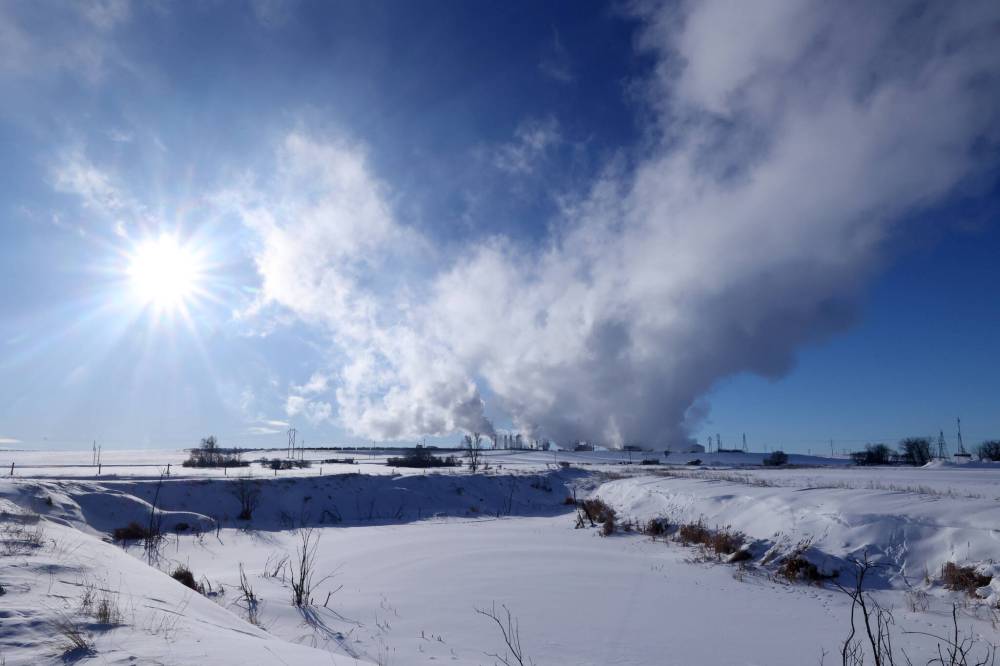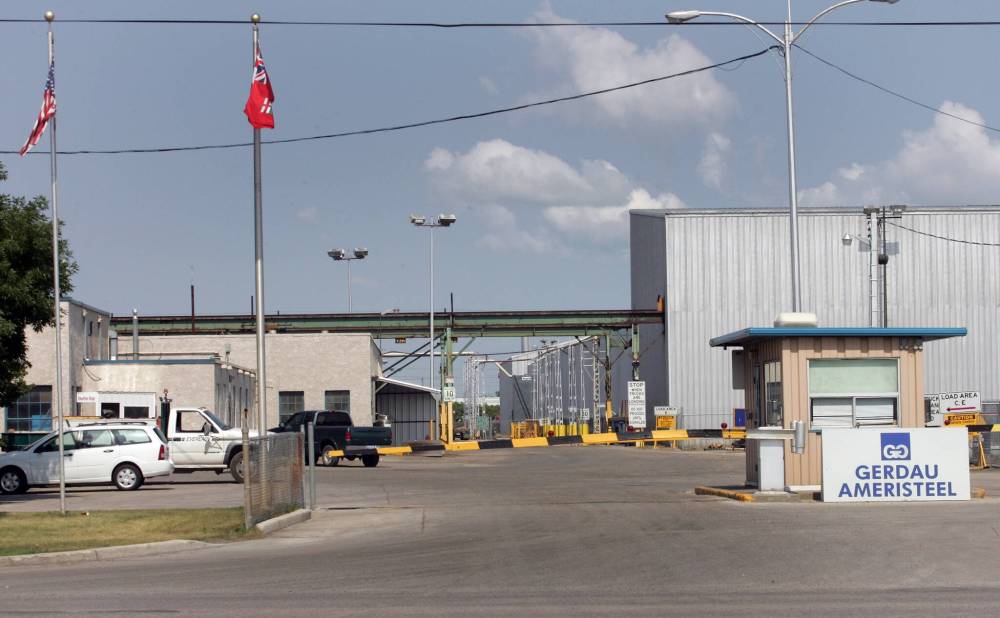Manitoba set to receive $26.4M over 5 years
Advertisement
Read this article for free:
or
Already have an account? Log in here »
To continue reading, please subscribe:
Monthly Digital Subscription
$0 for the first 4 weeks*
- Enjoy unlimited reading on winnipegfreepress.com
- Read the E-Edition, our digital replica newspaper
- Access News Break, our award-winning app
- Play interactive puzzles
*No charge for 4 weeks then price increases to the regular rate of $19.95 plus GST every four weeks. Offer available to new and qualified returning subscribers only. Cancel any time.
Monthly Digital Subscription
$4.99/week*
- Enjoy unlimited reading on winnipegfreepress.com
- Read the E-Edition, our digital replica newspaper
- Access News Break, our award-winning app
- Play interactive puzzles
*Billed as $19.95 plus GST every four weeks. Cancel any time.
To continue reading, please subscribe:
Add Free Press access to your Brandon Sun subscription for only an additional
$1 for the first 4 weeks*
*Your next subscription payment will increase by $1.00 and you will be charged $16.99 plus GST for four weeks. After four weeks, your payment will increase to $23.99 plus GST every four weeks.
Read unlimited articles for free today:
or
Already have an account? Log in here »
Hey there, time traveller!
This article was published 14/04/2025 (270 days ago), so information in it may no longer be current.
The consumer carbon tax is gone, but Ottawa continues to charge big industrial polluters and Manitoba is reaping some of the benefit.
The province is receiving $26.4 million over the next five years from the federal output-based pricing system that applies in Manitoba, and returns carbon-pollution proceeds to their jurisdiction of origin.
In March, Manitoba signed a bilateral agreement to receive a portion of funds collected by the Canadian government from large industrial emitters in the province.

In the first year of the deal, Manitoba received $7.3 million, a statement from Environment and Climate Change Minister Mike Moyes’ office said Thursday.
“Under the agreement, Manitoba must direct these dollars towards carbon-reducing projects,” the statement said.
The 2025 provincial budget allocates the funding “towards Manitoba’s net-zero objectives,” it said.
Climate Change Canada reported proceeds collected from its output-based pricing system in Manitoba totalled $32.4 million as of last July.
At the legislature, the opposition called out Premier Wab Kinew this week for saying during question period that “there’s no carbon tax across Canada.”
Manitoba’s Top 10 industrial emitters
Koch Fertilizer Canada (Brandon) 637,011 tonnes
TransCanada Pipelines (Winnipeg) 200,357 tonnes
Graymont lime plant (Faulkner) 103,878 tonnes
Cenovus ethanol plant (Minnedosa) 78,978 tonnes
Simplot Canada (Portage la Prairie) 63,365 tonnes
Canadian Kraft Paper Industries (The Pas) 62,538 tonnes
Manitoba Hydro (Brandon generating station) 46,730 tonnes
Gerdau Ameristeel Corp. (Selkirk) 45,258 tonnes
Bunge Canada (Altona) 40,111 tonnes
McCain Foods (Portage la Prairie) 33,007 tonnes
Source: Climate Change Canada
On April 1, Liberal Prime Minister Mark Carney eliminated the consumer carbon tax collected at the gas pumps and on home energy bills — the central plank of the federal Conservatives’ election campaign promise to “axe the tax.”
Conservative Leader Pierre Poilievre has promised to also eliminate the industrial carbon tax if his party wins the April 28 election.
Manitoba Progressive Conservative finance critic Lauren Stone said the federal industrial carbon tax needs to go.
“There is a federal backstop on 33 facilities in Manitoba (with) tens of millions of dollars a year going towards carbon taxation,” she said Thursday outside the chamber.
“We’re talking about these very trade-exposed industries right now that are dealing with U.S. and China tariffs. We’re talking about canola processing facilities, livestock facilities, steel manufacturers among many others. There are thousands of Manitoba jobs at these facilities.”
That money could go towards making Manitoba industries more competitive, towards capital investment, creating more jobs, increasing wages or spending on research and development, said Stone (Midland).
“That’s what this carbon tax is taking away,” she said, adding other provinces have removed their output based pricing system, making Manitoba less competitive.
“I’m calling on the premier to ask the feds to remove that federal backstop from Manitoba businesses,” she said.
She wants to know whether the province intends to create its own carbon pricing system.
“Until we hear those assurances, then Manitoba businesses have no assurance in this NDP government that there will not be a carbon tax on those trade-exposed businesses,” she said.
The province said Thursday it remains opposed to a federal carbon tax.
“Our government has consistently, since October 2023, opposed a federal carbon tax and we continue to oppose it,” Moyes said in his statement.
“There are no plans for a provincial industrial carbon tax.”
Federal output-based pricing in Manitoba, as well as Prince Edward Island, Nunavut and Yukon, applies to most industries that produce 50 kilotonnes or more of annual emissions.
Manitoba’s largest emitter, Koch Fertilizer Canada in Brandon, produces 637,011 tonnes annually, federal data shows.
The industrial carbon tax isn’t applied directly to Manitoba farmers, said Keystone Agricultural Producers general manager Colin Hornby.
“Our focus, alongside other ag groups, when it comes to carbon pricing has been ensuring it is not applied for on-farm uses, such as grain-drying and heating/cooling livestock buildings,” Hornby said Thursday.

“We are pleased the federal government has set the rate to zero for carbon pricing, but producers need long-term certainty,” he said.
KAP will advocate for a full repeal of carbon pricing for all on-farm uses permanently, Hornby said.
Some industries have supported an industrial carbon tax but complained about the patchwork system that varies across the country.
The Canadian Steel Producers Association said in an open letter in October that it supports an industrial carbon price “as the backbone of decarbonization” across Canada.
“Industrial carbon markets are the most flexible and cost-effective way to incentivize industry to systematically reduce emissions,” the letter said.
The association went on to criticize how the current system works and call on Ottawa to standardize regimes across provinces, arguing the “critical policy isn’t working as well as it should.”
— with files from The Canadian Press
carol.sanders@freepress.mb.ca

Carol Sanders
Legislature reporter
Carol Sanders is a reporter at the Free Press legislature bureau. The former general assignment reporter and copy editor joined the paper in 1997. Read more about Carol.
Every piece of reporting Carol produces is reviewed by an editing team before it is posted online or published in print — part of the Free Press‘s tradition, since 1872, of producing reliable independent journalism. Read more about Free Press’s history and mandate, and learn how our newsroom operates.
Our newsroom depends on a growing audience of readers to power our journalism. If you are not a paid reader, please consider becoming a subscriber.
Our newsroom depends on its audience of readers to power our journalism. Thank you for your support.








